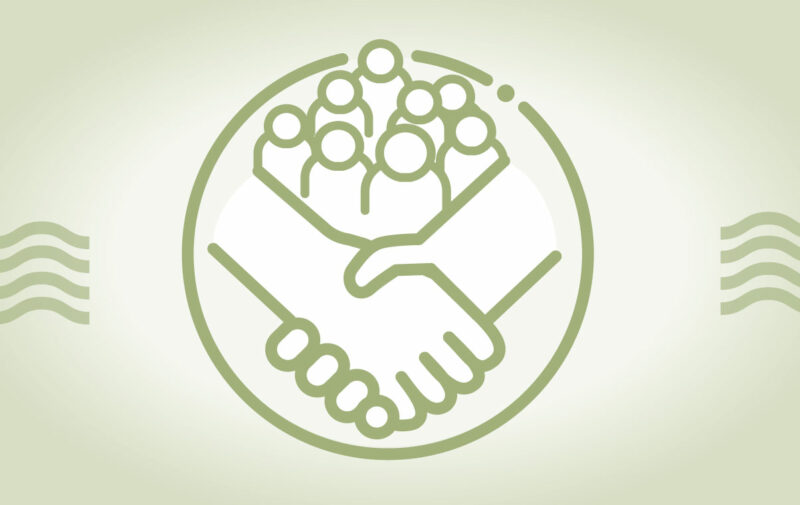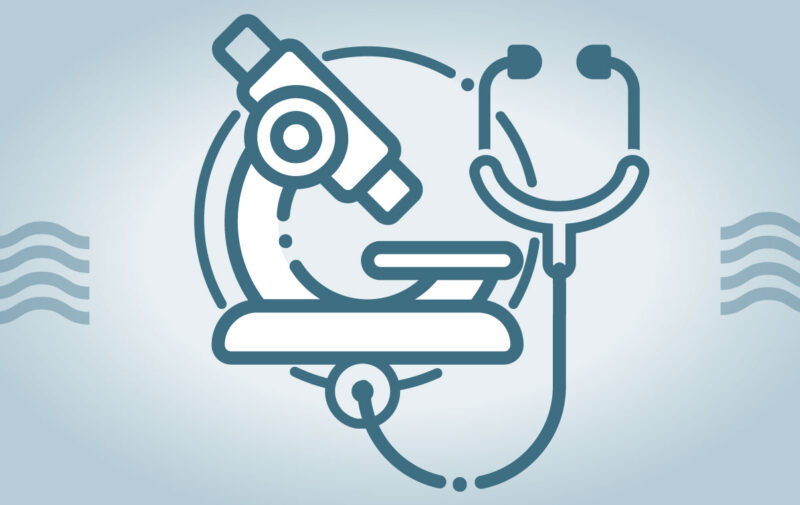
Community Catalyst Grant
Preventing Lead Exposure: No More High Lead Levels
Year Awarded:
2018
The original aim of this project was to address the health inequities of lead exposure and lead poisoning in the Metcalfe Park neighborhood in Milwaukee. However, the grant was reallocated to respond to the immediate needs of the community during the COVID-19 crisis.

COVID-19 Response Grant
Novel COVID-19 monoclonal antibodies for patient diagnostics, therapy and research
Year Awarded:
2020
This project aimed to address the unmet needs of current COVID-19 testing by developing novel molecules called monoclonal antibodies that act to restore, enhance, or mimic the immune system’s attack on the COVID-19 virus. The researchers successfully developed monoclonal antibodies that block viral entry into cells. In the future, these molecules can be incorporated into tests and contribute to therapies for COVID-19.

COVID-19 Response Grant
To Test the Protective Efficacy of Whole-Inactivated SARS-CoV-2 Vaccine in Syrian Hamsters
Year Awarded:
2020
When this project began, the COVID-19 pandemic required the development of vaccines to mitigate the impact of this virus. Whole inactivated vaccines are easy to produce and have been shown to be effective for several viruses including corona, influenza, and Ebola. Thus, the research team proposed to generate a whole inactivated SARS-CoV-2 vaccine virus and test its ability to protect against COVID-19 in an animal model of Syrian hamsters.
The research team determined that the inactivated vaccine virus elicited a protective immune response in a hamster model of SARS-CoV-2 infection. The vaccine alone without Quil-A® gave protection two weeks after a second vaccination, even against emerging variants. Although the durability of this inactivated vaccine is currently unknown, the addition of an immune response enhancing substance like Quil-A may extend its protective efficacy.

COVID-19 Response Grant
Men’s Emergency Shelter-Virtual Health Assessments
Year Awarded:
2020
The COVID-19 pandemic brought unprecedented challenges across communities, and transmission among underserved communities, such as people experiencing homelessness added complexity to the response. The goal of this project was to reduce the spread of COVID-19 at Porchlight Men’s Emergency Shelter by using an innovative technology-enabled solution of virtual volunteer nurses from Nurse Disrupted, LLC to screen all guests safely and accurately each day prior to admission to the homeless shelter sites. This project was successfully completed as the technology was developed and implemented. The technology solution had a 100 percent adoption rate, and surveys of guests and staff demonstrated high satisfaction with the telehealth service.

COVID-19 Response Grant
Supporting Healthy Black Families’ Workgroups
Year Awarded:
2021
Urban Triage has received an award for a project to support Black youth who have been disproportionality impacted during the pandemic. Their project will expand its transformative educational workgroup model to include access to telehealth resources and establish a youth-centered Hip Hop Based Educational (HHBE) workgroup to promote healing, resilience, self-esteem and connection. It will also support Black youth by providing training for existing social and emotional healthcare providers in the community through its Co-Conspirator workgroups. The partners will evaluate the impacts of services on adolescent mental health and well-being to inform sustainability and replication of workgroups.

COVID-19 Response Grant
The Role of Social Media and Community Advocates in Addressing the Health Consequences of COVID-19 in Black, Latinx and American Indian Communities
Year Awarded:
2021
Carey Gleason, PhD, associate professor, Department of Medicine, and co-principal investigators Maria Mora Pinzon, MD, MS, assistant scientist, Department of Medicine, and Melissa Metoxen, senior student services coordinator at the Native American Center for Health Professions were awarded a COVID-19 Response grant for utilizing social media and community advocates to address health consequences of COVID-19 in Black, Latinx and American Indian communities. The overarching goal of this project is to continue disseminating accurate information created by community advocates through social media about COVID-19 and evaluate the effectiveness of social media messages on changing beliefs, attitudes, and adoption of behaviors related to COVID-19 and vaccination.

COVID-19 Response Grant
Implications of COVID-19 on Service Delivery, Health, and Well-being for People With Intellectual and Developmental Disabilities
Year Awarded:
2021
Karla Ausderau, PhD, assistant professor, UW–Madison School of Education, Department of Kinesiology is using a COVID-19 Response grant to address significant health disparities and marginalization experienced by people with intellectual and developmental disabilities (IDD) that have been exacerbated by the COVID-19 pandemic. This project will elucidate the impact of COVID-19 on the health and wellbeing of people with IDD, evaluate current responses to address this impact and provide recommendations to guide service delivery to better meet the needs of this often-underserved population.

COVID-19 Response Grant
Growing Good People: Understanding Self and Resiliency
Year Awarded:
2021
Menikanaehkem, a grassroots organization based on the Menominee Reservation in Northeast Wisconsin, will use its grant to help build behavioral, social and hands-on skills for youth as they learn about their native language and cultures, and nature-based healing and resilience. This project promotes mental, physical, spiritual and emotional wellness through practices that are traditional to the Menominee tribal people.

COVID-19 Response Grant
Predicting Patient Outcomes in Wisconsin and Nationwide Using the University of Wisconsin’s COVID-19 EHR Cohort Database
Year Awarded:
2022
Using the COVID EHR Cohort at the University of Wisconsin (CEC-UW), this project aimed to analyze the disproportionate impact of COVID-19 on racial and ethnic minority groups in Wisconsin, compare disease outcomes between UW Health and other health systems and test associations between risk factors, treatments and vaccine status with disease outcomes. CEC-UW has been collecting electronic health record (EHR) data from all COVID-19 patients across 21 participating health systems and, as of September 2021, has compiled more than 250 EHR elements from 1.1 million COVID-19 patients. This data has the potential to help target high-risk individuals, improve treatment, guide variant management and enhance response to future disease outbreaks.
The results revealed that Black and Hispanic communities, along with low-income groups, faced significantly higher infection rates and more severe COVID-19 outcomes. Comparison of outcomes between health systems showed that UW Health patients had better recovery rates and lower mortality due to more effective health strategies, including advanced treatment protocols and higher vaccination rates. Finally, the project found that early treatments and full vaccination greatly improved outcomes, while those with underlying conditions or lack of vaccine access faced worse outcomes.

COVID-19 Response Grant
Widespread Protective Immunity Screening Against COVID-19 Using a Point-of-Care Serology-profiling Biosensor
Year Awarded:
2021
Filiz Yesilkoy, PhD, assistant professor, UW–Madison College of Engineering, Department of Biomedical Engineering, and co-principal investigators Irene Ong, PhD, assistant professor, Department of Obstetrics and Gynecology and Miriam Shelef, MD, PhD, associate professor, Department of Medicine, developed a user-friendly, cost-effective, point-of-care serology test for monitoring protective immunity against COVID-19. By developing this biosensor platform, investigators can more easily assess vaccination status, past infection status and protective immunity to inform communities in Wisconsin of the risk of COVID-19.